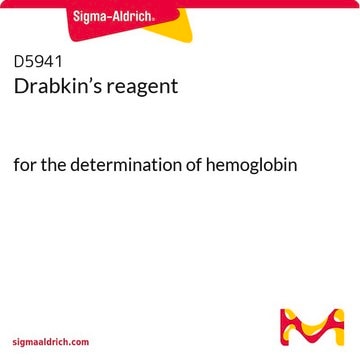W3516
Anti-WSTF (C-Terminal) antibody produced in rabbit
affinity isolated antibody, buffered aqueous solution
Synonym(e):
Anti-BAZ1B, Anti-Bromdomain Adjacent to Zn Finger Domain 1B, Anti-Williams Syndrome Transcription Factor, Anti-Williams-Beuren Syndrome Chromosome Region 9
About This Item
Empfohlene Produkte
Biologische Quelle
rabbit
Qualitätsniveau
Konjugat
unconjugated
Antikörperform
affinity isolated antibody
Antikörper-Produkttyp
primary antibodies
Klon
polyclonal
Form
buffered aqueous solution
Mol-Gew.
antigen 175 kDa
Speziesreaktivität
human, mouse
Methode(n)
immunoprecipitation (IP): 5-10 μg using from lysates of HEK293-T cells
indirect immunofluorescence: 10-20 μg/mL using paraformaldehyde-fixed NIH3T3 cells
microarray: suitable
western blot: 0.5-1 μg/mL using extracts of MCF-7 breast cancer cell line
UniProt-Hinterlegungsnummer
Versandbedingung
dry ice
Lagertemp.
−20°C
Posttranslationale Modifikation Target
unmodified
Angaben zum Gen
human ... BAZ1B(9031)
mouse ... Baz1b(22385)
rat ... Baz1b(368002)
Allgemeine Beschreibung
Immunogen
Anwendung
Western Blotting (1 paper)
Biochem./physiol. Wirkung
Physikalische Form
Haftungsausschluss
Sie haben nicht das passende Produkt gefunden?
Probieren Sie unser Produkt-Auswahlhilfe. aus.
Ähnliches Produkt
Lagerklassenschlüssel
10 - Combustible liquids
WGK
WGK 3
Flammpunkt (°F)
Not applicable
Flammpunkt (°C)
Not applicable
Persönliche Schutzausrüstung
Eyeshields, Gloves, multi-purpose combination respirator cartridge (US)
Hier finden Sie alle aktuellen Versionen:
Analysenzertifikate (COA)
Die passende Version wird nicht angezeigt?
Wenn Sie eine bestimmte Version benötigen, können Sie anhand der Lot- oder Chargennummer nach einem spezifischen Zertifikat suchen.
Besitzen Sie dieses Produkt bereits?
In der Dokumentenbibliothek finden Sie die Dokumentation zu den Produkten, die Sie kürzlich erworben haben.
Unser Team von Wissenschaftlern verfügt über Erfahrung in allen Forschungsbereichen einschließlich Life Science, Materialwissenschaften, chemischer Synthese, Chromatographie, Analytik und vielen mehr..
Setzen Sie sich mit dem technischen Dienst in Verbindung.





